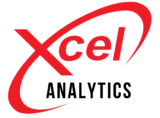
Java (Core)
Java is a general-purpose, high-level programming language that was first released in 1995 by Sun Microsystems (now owned by Oracle Corporation). It is an object-oriented programming (OOP) language, which means that it is based on the concept of “objects” that can contain both data and code. Java is designed to be platform-independent, meaning that the same code can run on different operating systems and devices without modification. This is achieved through the use of the Java Virtual Machine (JVM), which interprets compiled Java code and runs it on a specific platform.
This course will cover the following topics
-
Introduction to programming and Java language syntax: This includes an introduction to the basics of programming concepts such as data types, variables, operators, control structures, and functions.
-
Object-oriented programming: This covers the concepts of classes, objects, encapsulation, inheritance, and polymorphism in Java.
-
Exception handling: This covers the use of try-catch blocks and exception handling in Java.
-
Java Standard Library: This covers the use of the Java Standard Library, which includes a wide range of pre-built classes and functions for tasks such as input/output, networking, and data structures.
-
Collections framework: This covers the use of the Java Collections Framework, which provides a set of classes and interfaces for working with collections of objects.
-
Multithreading: This covers the use of threads in Java, including how to create, start, and synchronize threads.
-
File handling: This covers the use of file input and output in Java, including how to read and write text and binary files.
-
Advanced topics: Depending on the course, this may include topics such as reflection, generics, annotations, and other advanced features of the Java language.
-
Java frameworks and libraries: This covers the use of popular Java frameworks and libraries such as Spring, Hibernate, and Apache Struts for web development, and JavaFX for developing desktop applications.
-
Project work: In which students will have the opportunity to apply the knowledge they have learned in the course by working on a programming project.
